The aim of the conference is to consolidate interdisciplinary knowledge in the field of agriculture, biology, robotics, information technology and economics to solve urgent problems of digitalization of organic livestock and crop production based on the achievements of fundamental science and the best practices of agricultural companies.
- Republican Unitary Enterprise "Scientific and Practical Center of the National Academy of Sciences of Belarus on Agricultural Mechanization" (RUE SPС of the NAS of Belarus for Agricultural Mechanization, Minsk, Republic of Belarus)
- St. Petersburg Federal Research Center of the Russian Academy of Sciences (SPC RAS, St. Petersburg, Russia)
- Organic farming
- Legal aspects of organic production
- Rational nature management and ecology in agricultural production
- Robotics in agriculture
- Digital technologies and automation in animal husbandry
- Digital technologies and automation in aquaculture
- Digital technologies and agricultural development
- Digital technologies, production and markets of organic products
Special sections:
- Legal aspects of agriculture in the context of digitalization
- Management the health of agroecosystems under climate change
- Agriculture and environmental management in the Arctic regions
-
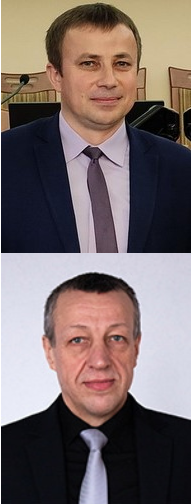
Komlach Dmitry, general director of Republican Unitary Enterprise "Scientific and Practical Center of the National Academy of Sciences of Belarus on Agricultural Mechanization", Candidate of Technical Sciences, Associate Professor, Minsk, Republic of Belarus.
Bakach Nikolay, deputy general director for Research of Republican Unitary Enterprise "Scientific and Practical Center of the National Academy of Sciences of Belarus on Agricultural Mechanization", Candidate of Technical Sciences, Associate Professor, Minsk, Republic of Belarus.
Lecture Title:General approaches and ways of implementing digital technologies in the agro-industrial complex of Belarus.
Abstract: General approaches and ways of implementing digital technologies in the Belarus agro-industrial complex. Abstract: Technical re-equipment of the branch should become the basis for increasing the efficiency of agricultural production in the republic, and aimed at 1.2-1.3 times reduction of products’ energy and resource intensity, ensuring comprehensive mechanization of technological processes and release workers in agriculture from hard work, negatively affecting the living standards and health of the rural population.
Automation and robotization of crop cultivation processes should play an important role in this. The presentation discusses the main directions of scientific and technological progress in the agriculture digitalization. Here presented the results of innovative developments at RUE "NPTS of the National Academy of Sciences of Belarus on agricultural mechanization" that implement technical vision, deep learning neural networks and elements of robotics.
Video of the report by Komlach Dmitry, Bakach Nikolay
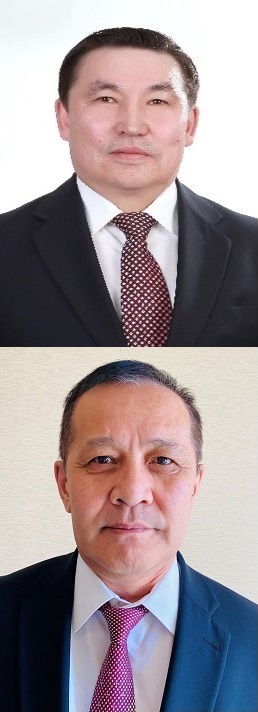
Bakyei Agipar, President of Mongolian Academy of Agricultural Sciences, Director of Research Center for Agricultural Economics and Development, Mongolian University of Life Sciences, Academician, Doctor of Economic Sciences, Ulaanbaatar, Mongolia.
Gantulga Gombo, Chief Scientific Secretary of the Mongolian Academy of Agrarian Sciences, Doctor of Technical Sciences, Ulaanbaatar, Mongolia.
Lecture Title: The necessity and potential for integrating digital technology into the mongolian pastoral livestock sector.
Abstract: The traditional pastoral livestock sector serves as a fundamental cornerstone in Mongolia's economy. During the last three decades, fluctuating economic conditions, socio-political dynamics, and eco-climatic factors have exerted diverse influences on the state of this crucial industry. As an illustration, when comparing the year 2023 to 1990, the population of livestock has nearly tripled. Nonetheless, the primary resource crucial to pasture livestock farming the state and quality of pasture lands – is progressively declining from year to year. In present conditions of climate change, major tasks to ensure sustainable development of agriculture and food security for each country can only be solved by relying on scientific and technological achievements. The introduction of modern digital technology is highly significant in ensuring the optimal utilization of pasture resources, proper monitoring animal movements, and improving animal health services. The implemention of digital technologies in pastoralism faces several challenges, including 1) issues associated with the unique aspects of pastoral livestock herding methods and technologies; 2) inadequate development of infrastructure to support the implementation of smart technologies in animal husbandry; and 3) a lack of fully prepared professional human resources proficient in digital technology. This includes using satellite and sensor data to 1) test modern remote sensing methods for grassland monitoring; 2) creating a map of grassland biomass distribution; 3) some studies have been conducted on the comparison and analysis of the relationship between pasture biomass and other factors. This presentation will introduce the main ways of introducing digital technology in Mongolian pastoralism.
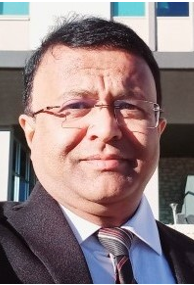
Gopal U Shinde, principal investigator, NAHEP, World-Bank Project Centre and Govt. of India and Associate Professor of Mechanical Engineering, FMPE, CAET, Vasantrao Naik Marathwada Agricultural University, Parbhani, India.
Lecture Title: Digital Farming Solution by Automation using Agri-Bots, Agri-Drones, Agri-AGVs.
Abstract: Digital Farming Solutions (DFS) by Robot, Drones and AGVs in agricultural automation systems. The development of smart portable technologies with low-cost automation is one of the objectives as to support to a small and marginal farmer. The cotton-picking automation, camera-based pest detection,3-D printing for drone and robot components, smart agricultural automation are current exercises of the world bank and Indian Council of Agricultural Research (ICAR) funded Centre of Excellence Project Centre in India for digital solutions in precision agriculture targeting the productivity enhancement. The practical experience shared while working with field robot, Drones (UAV), AGVs for farm operations using AI and ML which can be optimistic solutions in developing Decision Support System (DSS). Automation in agriculture using hybrid energy for automated field operational devices and machines are the new research field in agribusiness. The use of sensors using mechatronics system for precision agriculture can be beneficial to develop the low-cost technology-based devices for farmers or researchers. The present discussion focusing on digital technology with advancement in agriculture. The overall presently developed technologies and digital farming practices using Agri-bots, Agri-Drones and Agri-AGVs in precision farming system will be explained and exercised to best fitting purpose with commercialization opportunities at global level attention. The centre of excellence facilitating 6 field robots, 20 Agri-Drones,10 AGVs, more than 20 digital technologies developed by centre of excellence to promote digital farming society in India.
(https://nahep.vnmkv.org.in).
Video of the report by Gopal U Shinde
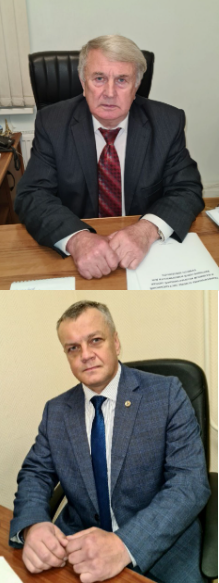
Viktor Yakushev, head of the Department of Adaptive Agrotechnology Modeling, Agrophysical Research Institute, Academician of the Russian Academy of Sciences, St. Petersburg, Russia.
Vyacheslav Yakushev, Head of the Laboratory of Information Support for Precision Agriculture, Agrophysical Research Institute, Candidate of Technical Sciences, Doctor of Agricultural Sciences, Corresponding Member of the Russian Academy of Sciences, St. Petersburg, Russia.
Lecture Title: Scalable potential of information support for modern agriculture.
Abstract: Information support level substantially determines the validity and effectiveness of the choice of adaptive agricultural technologies in the production of crop products.
The higher the level of intensification of agricultural technologies (normal (NT), intensive (IT), precision farming technologies (TK=PFT)), the more perfect should be the information support, envisioning a quantitative and qualitative growth in the volume of spatial and attribute data in the modern agriculture management.
Application of NT, IT and PFT depends on the degree of intra-field heterogeneity. The higher the variability of intra-field changeability, the less effective NT and IT are (they are effective if the field is homogeneous), and the expediency of using agricultural PF methods in such a case increases.
The presentation proposes to solve this problem using the Earth remote sensing data (RSD). The potential of RSD allows for the intelligent analysis of information characterizing the condition of crops over large areas, what is practically impossible when using ground-based measurements.
There exists no alternative as for remote sensing methods, tools and technologies. Developed by AFI functional of two new methods aimed at detecting and isolating boundaries of intra-field heterogeneity based on RSD data is considered.
The first method uses geostatistics’ tools, the other is based on an integral assessment of dynamics' changes in optical characteristics of agricultural plants. By the specialized computational experiments, the prospective role of their conjugate use is emphasized.
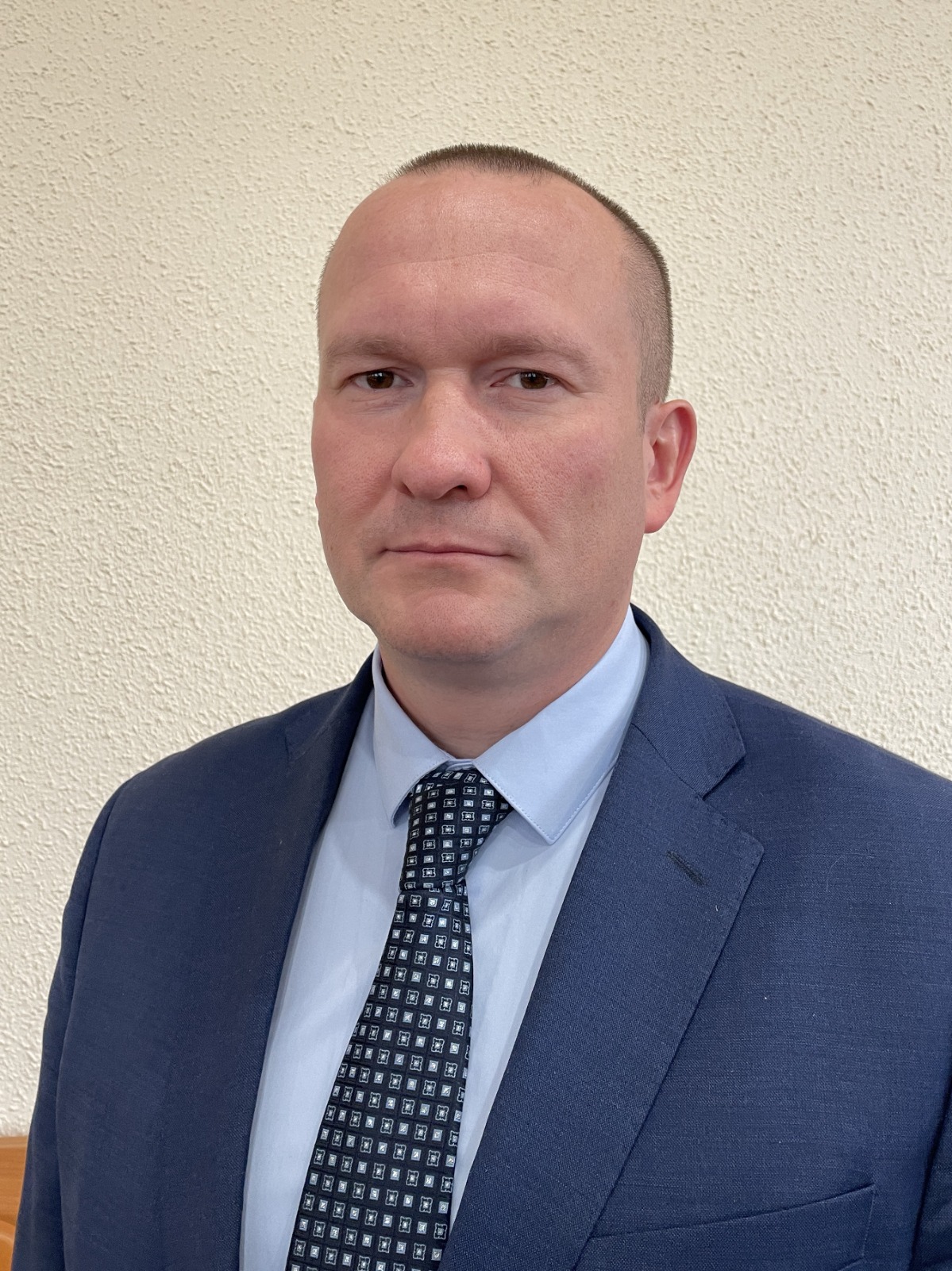
Bryukhanov Alexander, director of IEEP – branch of FSAC VIM, Doctor of Technical Sciences, Corresponding Member of the Russian Academy of Sciences, St. Petersburg, Russia.
Lecture Title: Scientific and technical support for the development of digital and engineering solutions for managing the environmental safety of agroecosystems.
Abstract: Agriculture at the present stage plays a significant role in shaping the global environmental sustainability of the planet.
The world production of agricultural products occupies 37.2% of the entire land area of the earth, uses 60-70% of fresh water out of global consumption, emits 15% of total greenhouse gas entering the atmosphere. Intensification of agricultural production allows to successfully solve the tasks of the food security doctrine, however, it creates a significant burden on the environment (increased waste generation, greenhouse gas emissions, emissions into water bodies, imbalance of agroecosystems in individual regions).
The concept of an intelligent analytical software platform has been developed at FSBI FNAC VIM, which allows for solving the tasks of monitoring and assessing the environmental safety of agroecosystems, forecasting environmental impacts depending on scenarios of technological development of agricultural production and proactive management through the design and implementation of the energy-saving technologies (the best available technologies).
Separate blocks have been developed and tested to assess and predict the diffuse impact on water bodies as a result of agricultural activities, a digital program for monitoring, evaluating and logistics of the use of organic fertilizers, an algorithm and a program for designing the best available technologies to process and use organic waste.
Video of the report by Bryukhanov Alexander
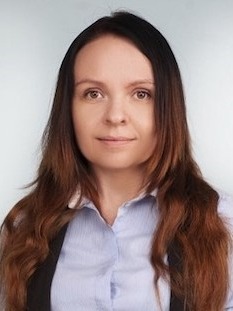
Alyona Kodolova, senior researcher, Acting Deputy Director for Scientific Work of SRCES RAS – SPC RAS, Candidate of Law, St. Petersburg, Russia .
Lecture Title: Digitalization of agriculture in Russia and Belarus: problems of legal regulation.
Abstract: Global processes of implementing digital solutions in agriculture allow to state that the digital transformation of agriculture is no longer a plan for the future; it is rather an actively developing process for today.
Innovative digital technologies help agricultural businesses to enhance labor productivity, optimize costs, and increase the competitiveness of agricultural products. The law often does not outstrip, but "follows" and often lags behind the digital technologies being introduced in agro-industrial production.
The main task of legislative regulation in the agriculture’s digitalization is to create a regulatory framework that corresponds to current trends and contains conditions for the further development of digital technologies in the agro-industrial sector.
The presentation proposes a comparative legal analysis of the current legislation of the Russian Federation and the Republic of Belarus in the agriculture digital transformation, including strategic documents setting targets for the government programs aimed at digitalization of agriculture, laws and regulations governing various areas for application of digital technologies, starting from the development and the use of automated information systems to the use of unmanned aerial vehicles and artificial intelligence at the production of agricultural products.
Video of the report by Alyona Kodolova
Conference Co-Chairs:
- Dmitry Komlach, RUE SPС of the NAS of Belarus for Agricultural Mechanization
- Alexander Kostyaev, SPC RAS
Program Committee Co-Chairs:
- Nikolay Bakach, RUE SPС of the NAS of Belarus for Agricultural Mechanization
- Andrey Ronzhin, SPC RAS
Program Committee Members:
- Mikhail Arkhipov, Russia
- Vlado Delik, Serbia
- Abusupyan Dibirov, Russia
- Eduard Dyba, Belarus
- Vadzim Dzemidchuk, Belarus
- Ivan Ermolov, Russia
- Oksana Glibko, Russia
- Mehmet Guzey, Turkey
- Viktar Haldyban, Belarus
- Dmitry Hort, Russia
- Larisa Ilyina, Russia
- Evgeny Ivashko, Russia
- Evgeny Khrustalev, Russia
- Vladimir Klybik, Belarus
- Alyona Kodolova, Russia
- Sergey Kosogor, Russia
- Valentina Kundius, Russia
- Georgy Laptev, Russia
- Nikolay Lepeshkin, Belarus
- Francisco Mas, Spain
- Roman Meshcheryakov, Russia
- Vadim Mikulski, Belarus
- Roman Nekrasov, Russia
- Adalat Pashayev, Azerbaijan
- Francesco Pieri, Italy
- Mirko Rakovic, Serbia
- Elena Semenova, Russia
- Svetlana Shchepetkina, Russia
- Mikhail Tatur, Belarus
- Alexander Tristanov, Russia
- Noah Velasquez, Mexico
- Elena Yildirim, Russia
- Anton Yurin, Belarus
Organizing Committee Co-Chair:
- Anton Yurin, RUE SPС of the NAS of Belarus for Agricultural Mechanization
Organizing Committee Members:
- Marina Astapova, SPC RAS
- Natalia Dormidontova, SPC RAS
- Dmitriy Levonevskiy, SPC RAS
- Alyona Lopotova, SPC RAS
- Alina Mikhailus, SPC RAS
- Anna Moreva, SPC RAS
- Anna Motienko, SPC RAS
- Irina Podnozova, SPC RAS
- Alexandr Smerchansky, SPC RAS
- Ekaterina Cherskikh, SPC RAS
Requirements for the design of articles in the collection of works "Agriculture Digitalization and Organic Production" in English in the series of books Smart Innovation, Systems and Technologies published by Springer
Articles submitted to the organizing committee should not be considered by another conference and should be published earlier or accepted for publication elsewhere.
Authors should submit for review an article in English in DOCM format with a volume of 10-12 pages, formatted in the Springer style according to the template and containing the following sections:
- abstract (180-200 words)
- keywords (at least 5 words and phrases)
- introduction
- main part
- conclusion
- acknowledgement (if necessary)
- reference list
Accepted papers must be personally presented at the conference by the authors.
Requirements for the report in the collection of conference materials published in «Belarusskaya Nauka», indexed in the Russian scientometric database of the RSCI
The authors must submit a DOC-format article of 5-6 A4 pages, including tables and figures, and corresponding to the following design requirements:
- Times New Roman font
- single line spacing
- There is no page numbering
- paragraph indentation – 1 cm
- margins – 20 mm
- The font size is 14 pt
- the page orientation is bookish
Reports containing research results should be accompanied by an expert opinion on the possibility of open publication.
>Participation in the video conference is free of charge.
In case of full-time participation in the conference, an organizational fee is paid, the cost of which includes the participant's package, catering, cultural services, in the amount of:
- 258 Belarusian rubles with VAT for citizens of the Republic of Belarus
- 215 Belarusian rubles with VAT for citizens of the Russian Federation and other countries
The accepted articles will be published in the book "Agriculture Digitalization and Organic Production" in English in a series of books Smart Innovation, Systems and Technologies published by Springer, indexed in ISI Proceedings, EI-Compendex, SCOPUS and Springerlink.
Digitalization Of Agriculture Industry, Collection Belarusian Science-2024
E-mail: conf@spcras.ru
Web: http://adop.nw.ru/